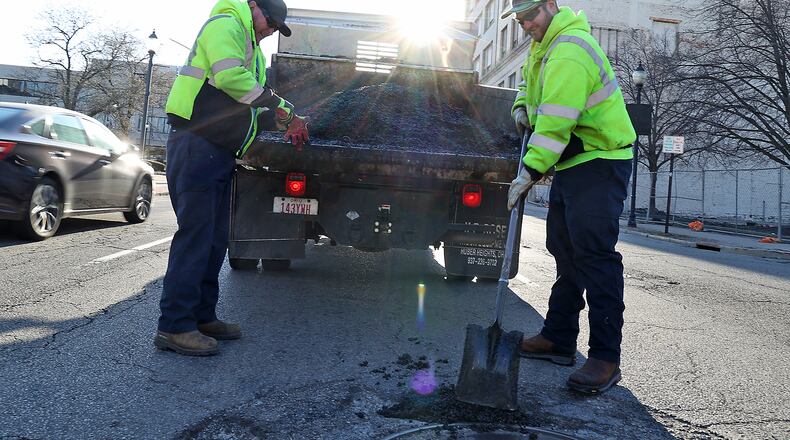City Manager Bryan Heck responded by noting “there was a nine-year hiatus where the city did not have the finances to pave our neighborhood streets. So we certainly got behind and we recognize that.”
Springfield has launched a major effort to address neighborhood street repairs following voter approval of a 0.4% income tax levy in 2017 and its renewal in 2021.
Credit: Bill Lackey
Credit: Bill Lackey
Heck said the city committed to spending $2 million annually toward repairing city streets when the levy was passed, and maintains the city has exceeded that investment. Over 100 streets have been repaved in the city since 2017, he said.
“We still have a lot more to go,” he admitted,” but that’s what happens when you go nine years without being able to do it.”
While many streets like West Columbia show the improvement from recent years’ work, there are both residential stretches (South Fountain) and main thoroughfares (West Main, West High) that have long, bumpy, pockmarked stretches.
Heck added that if city residents see a pothole, they should not assume that the city is aware of the problem. He asked Springfield residents to call City Services at 937-525-5800 to report potholes.
“If you call them about a pothole, I can guarantee it will get filled,” Heck said.
That can also allow city workers to assess the severity of problems and decide if the street should be included in the long-term schedule for major street reconstruction.
Credit: Bill Lackey
Credit: Bill Lackey
Sewer work near fire house
Later in the meeting commissioners approved an additional expense of up to $31,000 with Majors Enterprises for emergency sewer repair on Auburn Avenue. The total cost of the repair is expected to be about $105,500.
City Manager Bryan Heck explained the work is related to replacement of a 12-foot long, 60-inch wide sewer pipe being replaced near current construction of a new fire house.
“As we’re prepping to pave Auburn and Erie there we are addressing the underground infrastructure work …which is critically important because the last thing we want to do is go in and repave the street and then have a water, storm sewer or some other issue that means we have to tear that street up right away. So we want to protect our investment by repairing the infrastructure underground before we pave a new street.”
The city services department coordinates with Columbia Gas, the city water department and other underground providers to assure that planned upgrades to their pipelines can also be scheduled before the city plans street repaving.


